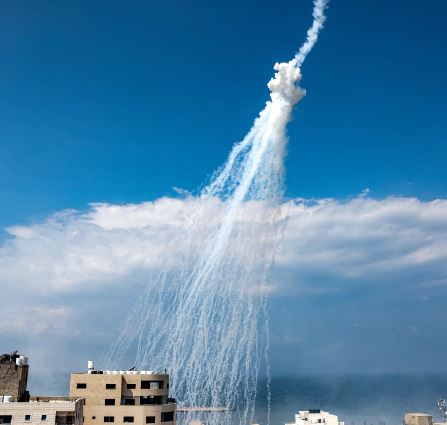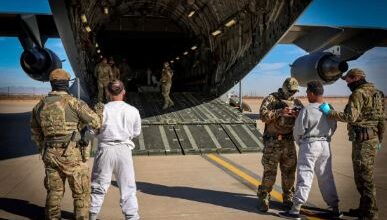Controversial Use of White Phosphorus by Israel in Lebanon Raises War Crime Allegations”

Recent reports have brought to light the controversial use of white phosphorus by the Israeli military in southern Lebanon, amidst escalating cross-border hostilities. This use of white phosphorus, particularly in populated civilian areas, has drawn severe criticism from international rights groups like Amnesty International and Human Rights Watch, with allegations of war crimes being raised.
Amnesty International has provided evidence, including verified photographs and videos, showing the Israeli army’s use of white phosphorus artillery shells in southern Lebanon. The incidents in question occurred in the town of Dhayra and other areas between October 10 and 16, 2023. In Dhayra, the shelling began in the afternoon of October 16 and continued into the night, resulting in widespread panic and evacuation among civilians. The attack caused suffocation, respiratory problems, and in some cases, severe burns to the residents. The lingering presence of white phosphorus remnants, reigniting when exposed to air, has continued to pose risks to the local population.
Human Rights Watch has also confirmed the use of white phosphorus in Gaza and Lebanon, emphasizing the significant risk it poses to civilians. The organization has criticized Israel for the indiscriminate nature of these attacks and the resultant egregious harm to civilians. Both Amnesty International and Human Rights Watch have highlighted that such use of white phosphorus, especially in densely populated areas, is indiscriminate and thus prohibited under international humanitarian law.
White phosphorus is a substance that ignites when exposed to air and burns at extremely high temperatures, causing horrific pain and life-changing injuries. Its use is highly controversial and restricted under international humanitarian law due to its incendiary effect and potential to severely burn people and set structures on fire.
Despite denials by Israeli Defense Forces spokespersons regarding the use of white phosphorus in these regions, the evidence presented by human rights groups paints a different picture. The use of white phosphorus in densely populated civilian areas raises serious concerns about adherence to international humanitarian norms and the protection of civilians in conflict zones.
The situation remains tense in the region, with fears of further escalation of hostilities. The call for a thorough investigation into these allegations is strong, with human rights groups urging Israel to halt the use of white phosphorus, especially in populated areas, and to abide by international commitments to avoid civilian harm. The incident in Dhayra and others like it underscore the urgent need for accountability and adherence to international laws in conflict situations.





